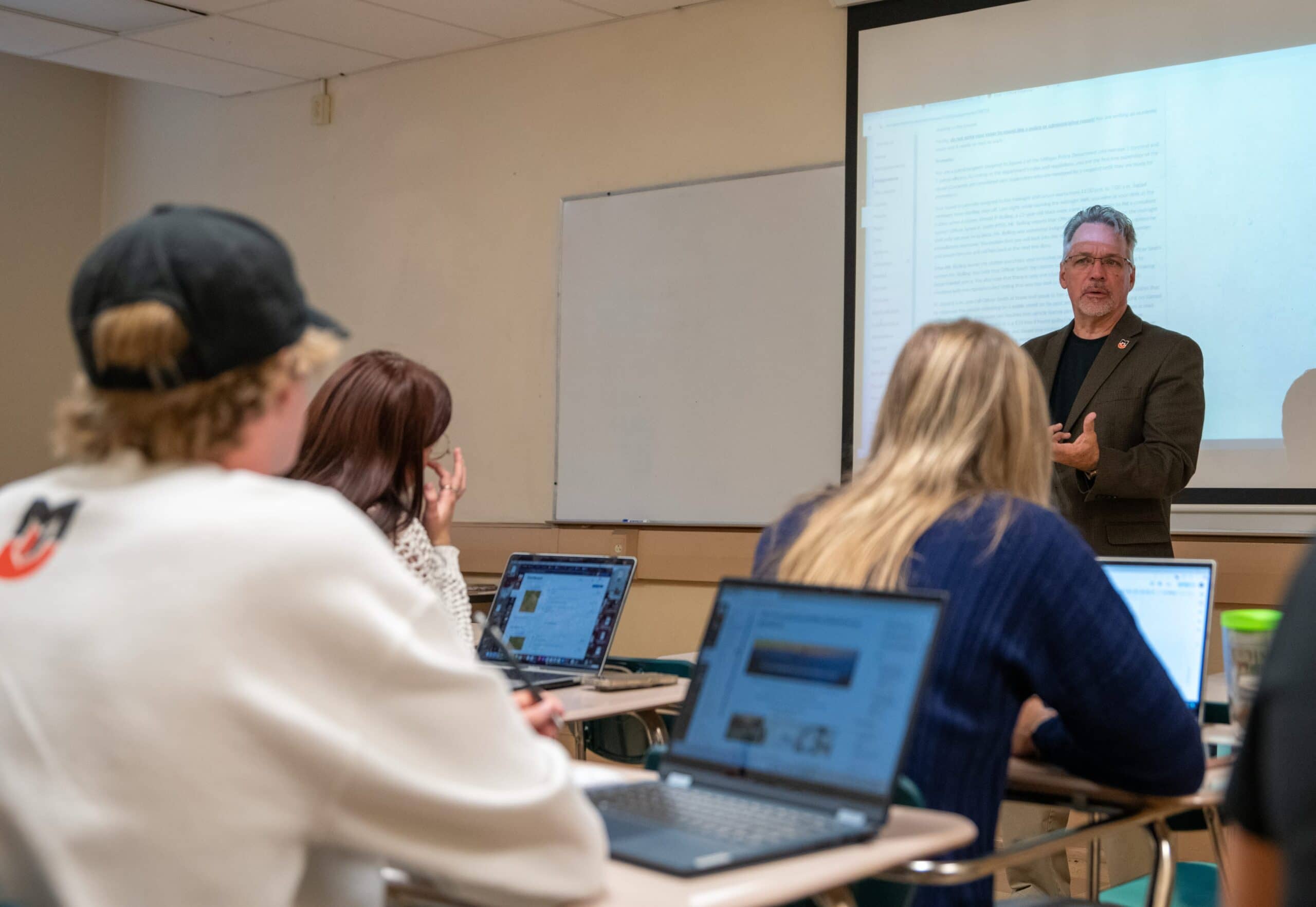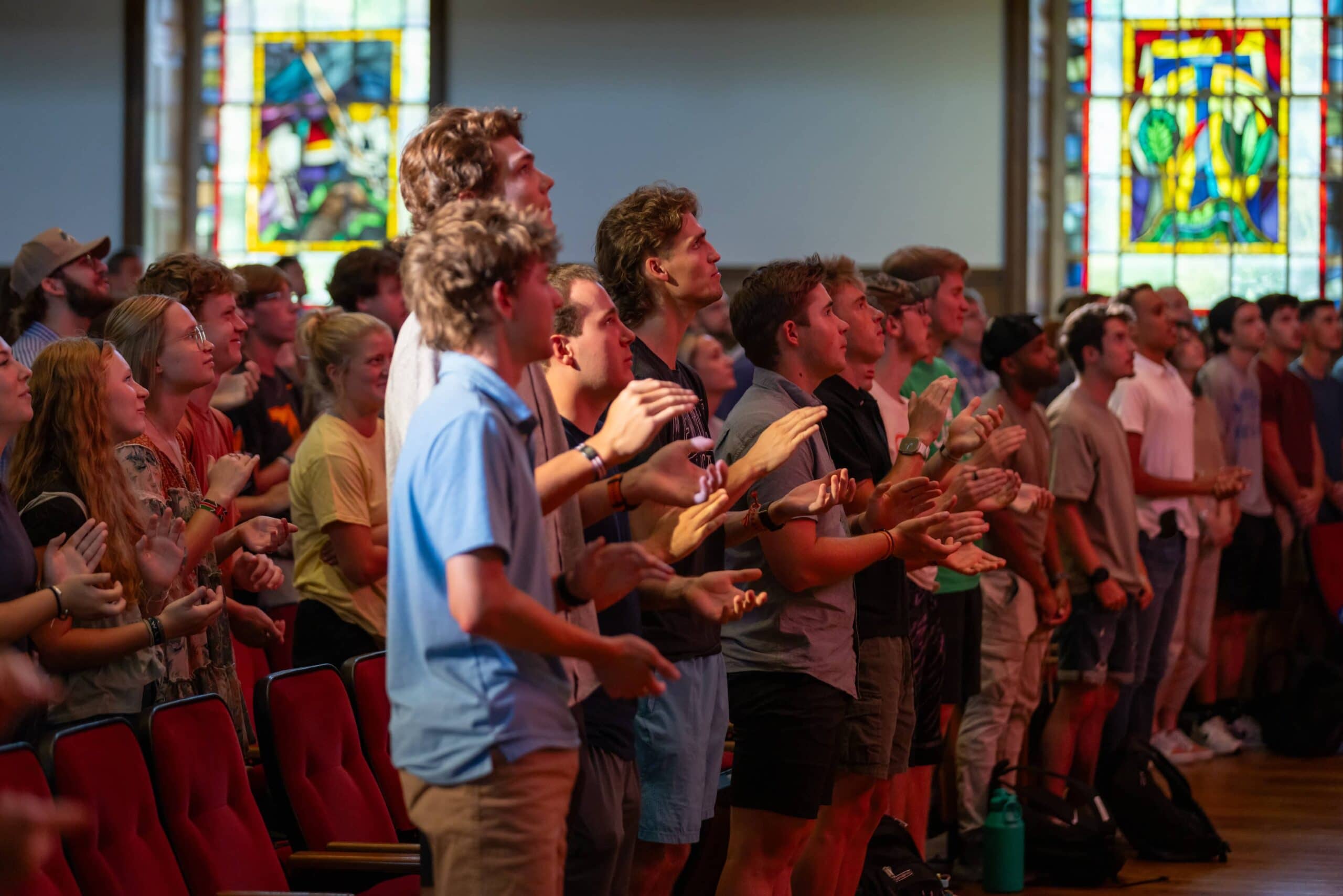Join a Cohort of Faith-Driven Leaders with a Doctor of Ministry
Emmanuel’s Doctor of Ministry program is specifically structured for pastors, ministers, and other leaders seeking advanced theological education while continuing their professional work. Flexible formats, a collaborative learning environment, and experienced faculty create an ideal setting for students to strengthen their ministry and serve more effectively. Rooted in sound theology and biblical understanding, the program equips leaders to inspire their communities and engage with the challenges of their calling.
EMMANUEL CHRISTIAN SEMINARY; SCHOOL OF BIBLE & MINISTRY
DOCTOR OF MINISTRY (DMIN)
Career Paths for DMin Graduates
Graduates of the Doctor of Ministry program are equipped for leadership roles that reflect their unique calling, specialized training, and comprehensive preparation. They are prepared to serve in diverse contexts, bringing vision, expertise, and a deep sense of purpose to their work.
Potential Careers
Senior Pastor
Ministry Consultant
Non-Profit Director
Church Planter
Pastoral Counselor
Academic Instructor
Accreditation
Emmanuel’s Doctor of Ministry program is offered through Emmanuel Christian Seminary at Milligan, both renowned for their commitment to academic excellence and spiritual formation. The program is accredited by the Commission on Accrediting of the Association of Theological Schools (ATS), ensuring the highest standards in theological education.

Four classes are offered each year. The spring and fall courses will be offered online, and the other two will be offered as hybrid courses over the summer as part of the degree program. The hybrid courses will be taught in back-to-back residential weeks each year to reduce travel expenses and will include an academic-area course and a ministry-area course.
The DMin program consists of 36 credit hours: 15 in the Classical Core, 14 in the Ministry Core, and 7 for the Final Project. The difference between the Classical and Ministry courses is their content and approach, not their purpose. All courses are focused on the understanding and practice of ministry. You will choose classes from the four courses offered each year.
Classical Core
Five 3-credit-hour courses are required in Christian Theology, Church History, the New Testament, and the Old Testament—one course in each area and another in the area of the student’s choice.
Ministry Core
Four 3-credit-hour courses and two 1-credit-hour courses are required in the area of Christian Ministries. One of those must be the Christian Ministry and Formation Seminar. The Christian Ministry fields include church administration, church growth, counseling, clinical pastoral education, leadership development, preaching, teaching, worship, world mission, and evangelism.
Project
Seven credit hours are awarded for the written project. The project consists of the design, accomplishment, and evaluation of a ministerial program. Students are encouraged to take the 3-credit course in Research Methodologies offered in the Christian Ministries Area early in their Doctor of Ministry Studies. As they complete their course work, students work on their final written project, which earns 4-credits.
Care must be taken to show how biblical, theological, and historical considerations inform the project. It should contribute to the understanding and practice of ministry in a broader context than that in which it was produced.
In previous years, the Association of Theological Schools (ATS) required an MDiv to obtain a DMin degree, but that is no longer the case. Anyone with a master’s degree in a ministry-related area that is accredited by ATS is eligible to apply. Remedial work may be required and is determined by the Dean of the Seminary on a case-by-case basis.
We are committed to making your graduate degree as affordable as possible. For this reason, we offer many institutional scholarships to help offset the cost of tuition, and all degree-seeking students are considered for a scholarship at Emmanuel based on your admissions application.
Emmanuel Faculty
Frequently Asked Questions
What Qualifications Do I Need To Apply for the Doctor of Ministry Program?
To apply for Emmanuel’s Doctor of Ministry program, you’ll need a strong academic and professional foundation in ministry. Applicants must hold a Master of Divinity degree or an equivalent theological graduate degree. This ensures you have the necessary background to engage with the advanced coursework and ministry challenges the program addresses.
In addition to academic qualifications, the program expects candidates to have at least three years of significant ministry experience. This experience provides the context needed to connect the program’s teachings with real-world applications. A minimum GPA of 3.0 in your previous graduate studies is recommended, reflecting a commitment to academic excellence.
The application process also involves submitting a personal statement that explains your calling, ministry experience, and goals for pursuing the Doctor of Ministry. Letters of recommendation from mentors or colleagues who can attest to your ministry experience and leadership abilities are also required. These components ensure that the program aligns with your professional journey and aspirations.
Milligan’s Admissions page provides detailed instructions on the application process. Our Admissions team can guide you through the process and answer any questions about financial aid and scholarship options.
How Is the Doctor of Ministry Program Delivered?
Emmanuel’s Doctor of Ministry program is designed for working professionals who need a flexible and practical learning environment. The program uses a hybrid format, combining online coursework with on-campus intensives. This approach allows students to continue their ministry work while pursuing advanced education.
Online courses allow students to complete assignments and participate in discussions from anywhere. They are structured to be engaging and interactive, fostering collaboration among students and faculty in the theological seminary. On-campus intensives, held periodically at Milligan University, offer opportunities for face-to-face learning and deeper engagement with faculty and ministry professionals.
Each course in the DMin program integrates theological reflection with practical application, ensuring that your learning is immediately relevant to your ministry. Faculty members, many of whom are experienced ministry leaders themselves, provide personalized guidance and mentorship throughout the professional doctorate program.
This delivery method allows you to balance your professional responsibilities with academic pursuits. You’ll gain advanced skills and knowledge without putting your current ministry on hold.
What Does the Final Project Involve?
The final project is the cornerstone of Emmanuel’s Doctor of Ministry program. This project addresses a specific challenge or opportunity within your ministry context. It provides a chance to apply the knowledge and skills gained throughout the program to a real-world issue, creating a lasting impact on your work and community.
Students begin by identifying a ministry need or goal aligning with their calling and responsibilities within the context of their ministry leadership. Through research and theological reflection, you’ll develop a practical, evidence-based solution that can be implemented in your context. Faculty mentors guide you through the doctoral degree program process, offering feedback and insights to ensure the project is academically rigorous and practically valuable.
The final project includes written and applied components, allowing you to present your findings and demonstrate their effectiveness. By addressing contemporary challenges with innovative approaches, this work fulfills program requirements and contributes to the broader field of ministry.
Your experience will prepare you to approach future ministry challenges with confidence, ensuring your leadership continues to grow.
Can I Customize My Doctor of Ministry Degree?
Yes, Emmanuel’s Doctor of Ministry program offers opportunities to tailor your education to your interests and ministry goals. Through elective courses, you can focus on areas such as leadership, pastoral care, spiritual formation, or other topics that align with your calling.
Electives are designed to complement the program’s core courses, providing flexibility to explore topics most relevant to your ministry context. For example, if you want to develop stronger leadership skills, choose electives focusing on organizational dynamics or strategic planning. Those working in counseling ministries can select courses emphasizing pastoral care and emotional support.
This customization ensures that your learning experience directly applies to your current work and future aspirations. Faculty advisors are available to help you select courses that align with your career path and personal interests.
To learn more about available electives and focus areas for the doctorate of ministry, visit Emmanuel Christian Seminary.
What career paths are possible with a Doctor of Ministry?
Graduates of Emmanuel’s Doctor of Ministry program are prepared for leadership roles across various ministry contexts. The degree equips you with advanced theological knowledge and practical skills, opening doors to diverse opportunities:
- Senior Pastor: Lead and inspire congregations with wisdom, vision, and care. Provide spiritual guidance, deliver impactful sermons, and oversee the church’s overall direction to ensure a thriving, faith-centered community.
- Ministry Consultant: Work with churches and faith-based organizations to develop effective ministry strategies. Offer advice on discipleship programs, leadership development, and community outreach efforts to achieve their mission more effectively.
- Non-Profit Director: Lead and manage faith-based non-profit organizations that address community needs such as poverty, education, and social justice. Develop programs, secure financial aid, and build partnerships to create meaningful and lasting change in the community.
- Church Planter: Establish and grow new congregations in areas with limited access to spiritual resources. Develop a vision for the church, build relationships in the community, and create a strong foundation for long-term ministry impact.
- Pastoral Counselor: Provide compassionate spiritual guidance and emotional support to individuals, couples, and families. Help them navigate life challenges with a focus on faith, healing, and personal growth.
- Academic Instructor: Teach ministry courses at colleges, universities, or seminaries. Mentor students preparing for careers in ministry and contribute to their academic and spiritual development.
- Denominational Leader: Oversee and support a network of churches within a region or denomination. Facilitate collaboration, offer leadership resources, and ensure churches are aligned with shared values and goals.
- Missionary Leader: Coordinate and direct global or local mission initiatives. Mobilize teams, develop outreach strategies, and build partnerships to share faith and provide practical assistance to communities in need.
Each role offers opportunities to make a meaningful impact, supported by the theological and practical training you’ll receive in the Doctor of Ministry program.










